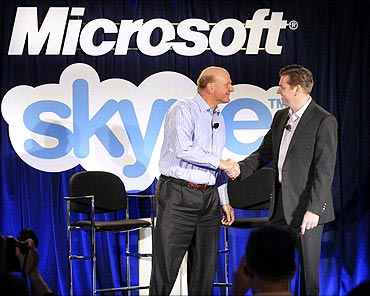
I've just signed off from a video call. I am on Skype on my iPad in Gurgaon, my friend on his iPhone in Boston. Most of our chat was about what would happen to the Estonia-born, Luxembourg-based, Skype, as a Microsoft division.
But I also recounted my most exciting Skype session ever, way back in 2004. That was 40,000 feet above the Atlantic, from Frankfurt to JFK.
I declined the multi-course hospitality of business class, for all I wanted to do was get onto my laptop. Lufthansa was testing out the world's first in-flight wi-fi service, and so I had free wi-fi for most of the flight. And that meant free calls on Skype.
It was glitchy; calls would echo and drop; and I didn't have that many friends on Skype at the time. And there was no SkypeOut, the paid service that we use to dial out to regular phone numbers today. There was no video. But I didn't care. It was my shortest transatlantic flight ever.
Skype is one of those rare achievements: a product that helped change the world. Not just for the over 140 million who use it every month, generating a (claimed) fifth of the world's voice traffic, but for the billions who don't use it.
. . .
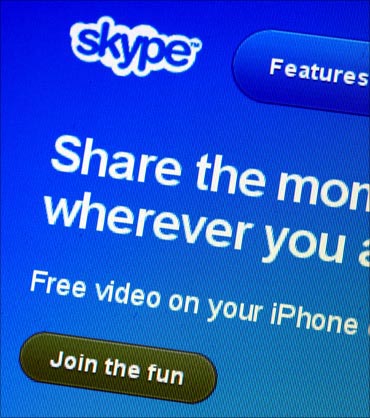
If call rates to the United States from India have dropped tenfold in 10 years, you can thank Skype. Some may argue that it's VoIP (voice over Internet protocol) in general, and not just one product.
VoIP technology changes voice to small digital packets and sends them out over the Internet just like email.
But it is Skype that is the embodiment of VoIP: its most successful consumer implementation by far, and its best known brand.
Using Skype on your PC, and a headset (headphones and mic), you can talk to a friend who is also using Skype, free. If you need to call someone who isn't using a computer at the time, you use the paid service, SkypeOut.
Calling a US phone number costs you less than 2 cents (90 paise) a minute, and an India number, under 8 cents (Rs 3.60) a minute.
. . .
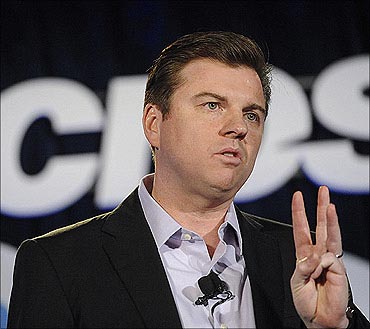
My Delhi home was 'Skyped' seven years ago, with a $50 box from D-Link connected to the phone line. On our plain old digital cordless phones, when you dialed '00' for an international call, the box switched it to the Skype-out service and dialed the number. It felt like a regular call.
So when my mom called her brother in the US, she'd be using Skype, though she had no idea what Skype was: nor did she ever use a computer.
It's this ability to embed Skype into another system that can give you some clue of what Microsoft might do with it.
An obvious step is to integrate Skype into its Windows Phone software. This is not the same thing as downloading a Skype app into your phone, as you can do today.
It's about blending it smoothly into the phone, letting you make calls from your phonebook or dialer, routing those calls automatically through Skype.
. . .
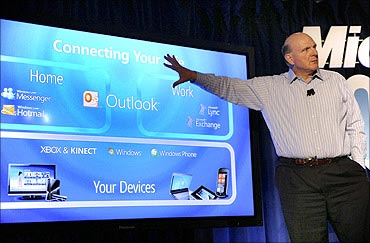
Expect to see this in Nokia phones in a year, thanks to its deal with Microsoft to use Windows as the successor to Symbian in its smartphones.
Nokia already integrates 'Internet calls' into many handsets in the main dialer, using a system called SIP; it works, but not quite as smoothly.
Caveat: The big carriers may not be as happy as customers, about an easy option to bypass their voice call revenue. And in much of the world (unlike in India), carriers decide phone functionality.
Skype would also be supported on Microsoft's gaming products, xBox and Kinect, especially as they get connected over the Internet for network and multiplayer gaming.
Whether it's Google, Microsoft or Oracle, there is little by way of dramatic innovation happening in most large corporations. It's mostly all acquisitions. Some, like Skype, can impact multiple areas, changing the roadmap for key products.
. . .

For Microsoft, most of those products impacted would be in the business arena, and not consumer tech.
How Skype will change Microsoft
Why did Microsoft pay such a whopping price for Skype, nearly $1,000 per paying Skype customer?
After Windows Phone, the other obvious integration target for Skype is Windows.
The next build of Windows 7 may have Skype built in. This could push Skype, thus far largely an individual and small-business phenomenon, deeper into enterprises.
. . .
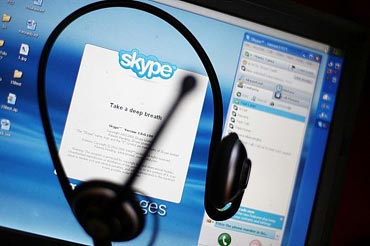
Together with increasing use of video on the desktop, it would accelerate personal video-conference use, and likely threaten companies like Polycom and Logitech, which make desktop videoconferencing products.
Even bigger in terms of returns would be the integration of Skype into Microsoft's office apps and platforms.
There's Lync, its communications product. Microsoft has been eying the multi-billion-dollar office PBX systems market, where enterprises are replacing traditional systems with VoIP systems, which use more software, by value, than hardware.
Then there's Microsoft Office, and Exchange Server, for email. The next, pay-as-you-go (or 'cloud') version of Office, Office 365, is a natural for Skype inclusion, giving the company another cloud service to sell to business users.
Most of the other guesses, including about monetizing Skype's consumer base through ads or other associations, are likely misplaced. This deal isn't about ads.
. . .

Nor is it about Facebook. Many are expecting Facebook to also integrate with Skype in some bigger way, thanks to Microsoft's 1.6 per cent share in Facebook (acquired in 2007 for $240 million, thus valuating Facebook at $15 billion then).
Facebook and Google were supposed to be the main contenders to buy out Skype, when Microsoft sprang its $8.5ibillion surprise.
I don't see Facebook in the picture for Microsoft's acquisition, and I don't expect anything happening there. Yes, maybe Skype and Facebook will allow you to add your friends from one service, to the other, but that's about it.
Skype already lets you use Facebook Connect to discover Skype users among your Facebook friends (skpfb.com).
Will Microsoft recover its $8 billion investment? Maybe not. It doesn't need to, anytime soon; at least it's doing something with all that cash ($50 billion) that was lying around gathering dust.
. . .

An Irish Times columnist notes that the greatest value of Skype's investment for Microsoft is to keep it out of reach of competitors, as it focuses on its real fight, which is 'not to innovate, but to maintain its market share against increasingly threatening rivals'.
Now that is rather extreme. I do believe Microsoft will derive value from Skype. But it may not be value that is easily countable. Instead, it would increase the functionality (and life) of its business offerings, and its desktop and mobile Windows platforms.
And Microsoft sees more value there than in the large user base, or in Skype's revenues or paying customers.
Microsoft desperately needed a shot in the arm to sharpen its business and consumer products with a dash of tech and a dose of cool that it's sorely been lacking.
Will Skype do it? I certainly hope so . . . if only because I do so like to root for the underdog.
Prasanto K Roy is chief editor at CyberMedia, and you can find him at twitter.com/prasanto.